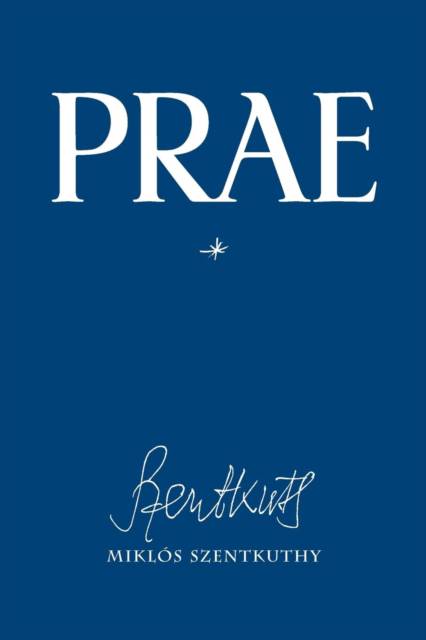
Je cadeautjes zeker op tijd in huis hebben voor de feestdagen? Kom langs in onze winkels en vind het perfecte geschenk!
- Afhalen na 1 uur in een winkel met voorraad
- Gratis thuislevering in België vanaf € 30
- Ruim aanbod met 7 miljoen producten
Je cadeautjes zeker op tijd in huis hebben voor de feestdagen? Kom langs in onze winkels en vind het perfecte geschenk!
- Afhalen na 1 uur in een winkel met voorraad
- Gratis thuislevering in België vanaf € 30
- Ruim aanbod met 7 miljoen producten
Zoeken
Omschrijving
Considered an eerie attack on realism, when first published in 1934, Miklós Szentkuthy's debut novel Prae so astonished Hungarian critics that many deemed it monstrous, derogatorily referred to Szentkuthy as cosmopolitan, and classified him alien to Hungarian culture. Incomparable and unprecedented in Hungarian literature, Prae compels recognition as a serious contribution to modernist fiction, as ambitious in its aspirations as Ulysses or À la recherche du temps perdu. With no traditional narration and no psychologically motivated characters, in playing with voices, temporality, and events, while fiction, Prae is more what Northrop Frye calls an anatomy (à la Lucian, Rabelais, & Burton) or Menippean satire: the basic concern of the book is intellectual, its pervading mood is that of a comedy of ideas. As a virtual novel that preempts every possibility for its realization, it is a novel but only virtually so, a book which is actually a prae-paration for an unwritten (unwritable) novel. In this, it maintains the freedom and openness of its potentialities, indicative for instance in the Non-Prae diagonals, a series of passages that intercut the novel and continually fracture space and time to engage in what one of the figures of the book calls the culture of wordplay or dogmatic accidentalism. "The book's title," said Szentkuthy, "alludes to it being an overture. A multitude of thoughts, emotions, ideas, fantasies, and motifs that mill and churn as chimes, an overture to my subsequent oeuvre." By challenging the then prevailing dogmas and conventions of prose writing, Szentkuthy was said to have created a new canon for himself but later derided as insignificant for supposedly not acquiring followers. Largely unread at the time, Prae eventually gained cult status and would be reprinted in 1980 and 2004. To some critics, the book is not only one of the representative experimental works of the early 20th century, but in its attempt to bring 'impossible literature' into being, it also presages the nouveau roman by almost 30 years. And in its rejection of sequentiality and celebration of narrative shuffling, long before Burroughs & Gysin, Prae enacts what is conceptually akin to the cut-up. Few of Szentkuthy's contemporaries would reveal with equal bravura and audacity the new horizons that were opened up for narrative forms after the era of realism. In Frivolities & Confessions, Szentkuthy said that his goal with Prae was "to absorb the problems of modern philosophy and mathematics into modern fashion, love, and every manifestation of life." Translated for the first time since its original publication in 1934, upon its 80th anniversary, this legendary and controversial Hungarian modernist novel is now at last available in English.
Specificaties
Betrokkenen
- Auteur(s):
- Vertaler(s):
- Uitgeverij:
Inhoud
- Aantal bladzijden:
- 788
- Taal:
- Engels
Eigenschappen
- Productcode (EAN):
- 9781940625089
- Verschijningsdatum:
- 18/12/2014
- Uitvoering:
- Paperback
- Formaat:
- Trade paperback (VS)
- Afmetingen:
- 152 mm x 229 mm
- Gewicht:
- 1133 g

Alleen bij Standaard Boekhandel
+ 111 punten op je klantenkaart van Standaard Boekhandel
Beoordelingen
We publiceren alleen reviews die voldoen aan de voorwaarden voor reviews. Bekijk onze voorwaarden voor reviews.









